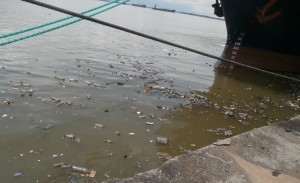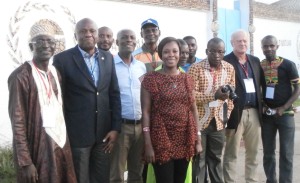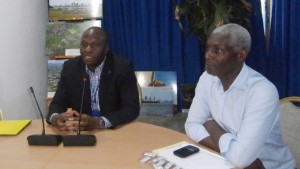A team of environmental journalists who participated in the Abidjan Convention (ABC) workshop that focused on Marine Litter has resolved to step up the fight against marine pollution which is increasingly becoming a major threat to African and global aquatic ecosystems.

At the close of a three-day forum at the Ivorian capital city, the journalists in a three-point declaration committed individually and collectively to continue to disseminate and share information pertaining to the marine and coastal environment in the Abidjan Convention area and to the Abidjan Convention in particular, including problem of marine litter.
They also resolved to share knowledge, expertise and ideas with one another on a regular basis to further this individual and collective commitment and to encourage a wider dissemination of information.
“We commit to engaging ourselves with local, national and international partners to encourage dissemination of the information pertaining to the marine and coastal environment in the Abidjan Convention area and to the Abidjan Convention in particular, including marine litter,” they declared, adding: “We will work together to encourage better positive decision making”.

Sponsored by the Swedish government and hosted by ABC Secretariat of UNEP, the workshop was the second in a series that began in December 2013, conducted by Canadian environmental journalist and communications consultant, David Israelson, with the assistance, support and participation of the Secretariat.
A field trip to the fishing habour in Abidjan during which Mr. Anatolek K. Koussi, Head of the Environmental Department, conducted the journalists around the port, formed part of the tanning workshop.
According to him, the Port Authority of Abidjan is intensifying efforts towards addressing marine littering in the port area, as the problem becomes a major concern for the port authorities.

Partnerships and Fundraising
Division of Environmental Policy Implementation, Abidjan Convention/UNEP
Litter debris of plastics and among other types of waste comes from all parts of the districts and sediment at the ports during high tide. Port Autonomy D`Abidjan is doing its best within its institutional mandate to manage the uncontrolled flooding waste, Koussi told the visiting team of journalists. The port authorities are doing their best to stem the tide in terms of solid and liquid waste management. Plans are far afoot, Kouassi disclosed, to establish a liquid waste processing and recycling facility in the port to address the discharge of waste oil from ships.
The construction of a container terminal and an enclave within the port for private companies engaged in processing and other fishing industry related ventures are also to be carried out under a port expansion project.
